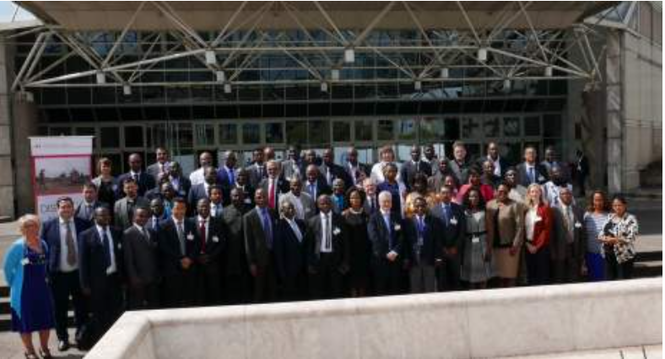
“The challenge is how customs can fulfil its economic function while preserving the humanitarian imperative.”
With these words, Mr. Alexis Bisanukuli, Deputy Representative of the Office for Coordination of Humanitarian Affairs (OCHA) to the African Union (AU), spoke to a key challenge to customs in facilitating humanitarian action.
Those attending the “Role of Customs in Natural Disaster Response” regional seminar listened attentively to Mr. Bisanukuli’s remarks. Hosted by the World Customs Organization (WCO), OCHA and the International Federation of Red Cross and Red Crescent Societies (IFRC) in Addis Ababa, Ethiopia on 9-10 March 2016, the seminar was organized as a joint effort to increase the effectiveness of existing customs procedures and regulations applicable to humanitarian goods and personnel through the use of tools and instruments available to facilitate international operations.
Ms. Rita Amukhobu, African Union Commission Political Officer pointed out that Africa is a continent of huge labour and resource and that there is a need to shift focus to the best use of this abundant resource for effective support in humanitarian operations. Ms. Amukhobu felt that the problem is not so much the absence of normative frameworks – noting achievements by most Regional Economic Commissions (REC) in developing rules and regulations facilitating the movement of goods within their regions. Rather, she said, “the challenge is getting it right and when that happens, humanitarian relief will be enhanced in Africa”.
Seventy participants from 22 African countries representing customs administrations, national disaster management authorities, National Red Cross and Red Crescent Societies, the AU, United Nations agencies, RECs and diplomats met to discuss partnership opportunities and challenges among relevant stakeholders involved in the management of humanitarian operations.
At a national level, advocating for the adoption of relevant international customs instruments were highlighted as priorities. Participants worked in country delegations to formulate a plan of action that will help them address the challenges identified over the course of the seminar. The plan of actions included calling for stakeholder meetings with relevant actors, revising existing legal frameworks, creating regional platforms and organizing meetings to further enhance cooperation among countries in international response. Regional support from WCO, OCHA and IFRC in seeing through the implementation of the plan of action was also discussed.